With rising inflation and increasing prices on all utilities, it’s no wonder that many Americans today are looking for ways to cut costs wherever they can.
In addition to being a great alternative for those looking to slash costs on their utility bills and annual heating and cooling costs, wind, solar, and hydro power offer an attractive power source to the prepper or the steadfast homesteader interested in maximizing their self-sufficiency or general ability to live off the grid. Alternative energy can also be used in areas where the power grid is prone to failure.
Solar power is of course the most well-known alternative energy source, but it is not always a viable option for everyone, especially those who live in northern climates where daylight hours are short or sunlight is scarce. If you live closer to the equator and have sufficient sunlight and the necessary do-it-yourself skills, though, solar power can be some of the cheapest of alternative energy systems to set up.
In addition to being lower cost and easier to set up, a standard solar panel array is very low maintenance and has an extremely long lifetime. Such panels can be left unmonitored for extended periods, their operation is silent and unobtrusive, and they offer reliable, predictable levels of power output based on the amount of sunlight they receive.
Standard components for a solar panel system include not just the solar panels themselves but also the controller, which protects the batteries by regulating the flow of electricity from the panels, the batteries for storing electricity for later use, and an inverter, which converts the energy stored in the batteries to the voltage needed to run standard electrical equipment. As a do it yourself project, solar panels average $3.00 – $6.00 per watt or more to install.
Small, preassembled solar panel kits are also available from many retailers and are capable of producing anywhere from 45 watts to 150 watts of energy, and range in price from $200 – $600 and higher.
All solar panels will come with a standard rating from the manufacturer for the wattage they should produce per square foot; for most solar panels production averages approximately 10 watts per square foot, or approximately 12% efficiency. This translates into needing approximately one hundred square feet of solar panels to produce one kilowatt of energy under ideal, full sun* circumstances.
When purchasing from most retailers, however, it’s important to remember that in the world of solar panels you largely get what you pay for. So, when a deal seems too good to be true, it probably is. Quality solar panels and other materials for a DIY project will generally range in price from a minimum of $500 to upwards of $5000.
Costs include the price of setting up the actual panels as well as the batteries to store the electricity they generate, the battery chargers, the inverters, the monitors, the cables, fuse protection, and generally some form of backup generator as well.
Compared to the cost of a professionally installed, full house system, a do-it-yourself solar panel system can save you tens of thousands of dollars. Although government subsidies and lucrative tax credits can reduce the cost of the $50,000 – $60,000 solar panel installation for your on the grid home to anywhere from $25,000-$45,000.
In addition to the reduced cost, if your solar panel array produces enough electricity to put energy back into the power grid, your power company will actually send you a check each month for the energy produced. Such systems are also guaranteed for 20 years or more by the installing contractor.
If the cost of a full-scale solar power set up is off-putting or simply beyond your budget, however, wind power may be just the alternative you’re looking for. With small wind power generators increasing in popularity and falling in price in recent years, it’s now possible to set up a wind power generator for as little as $1.50 per watt.
You have to live in a very windy climate for this generator to be of true use, but assuming you have the wind this is one of the cheapest alternative energies available and can prove more reliable than the sun in some locations.
Wind generators also have the advantage of operating day and night, but location is critical to achieve maximum production, and because of their moving parts, they do also require increased maintenance. Larger wind generators can also incur additional mounting costs in order to be mounted on towers where they can catch the best wind current.
 Low wind speeds can also lead to little or no power output, and larger wind turbine arrays may pose a hazard to passing birds, particularly birds of prey. There is also a slight chance for noise pollution, especially if your wind turbine is particularly productive, resulting from the whirring sound of the blades.
Low wind speeds can also lead to little or no power output, and larger wind turbine arrays may pose a hazard to passing birds, particularly birds of prey. There is also a slight chance for noise pollution, especially if your wind turbine is particularly productive, resulting from the whirring sound of the blades.
Small wind generators designed to produce anywhere from 50 watts to 200 watts are available from a variety of manufacturers and range in price from approximately $700 to upwards of $1200.
Another option you may consider for alternative energy generation is hydropower or micro-hydro generation. This is a great option to take advantage of if you have a fast-moving, reliable source of water to make use of, and it comes with several advantages including being able to operate 24/7, much greater reliability than solar or wind power under most circumstances and cheaper cost for initial implementation.
On the downside, hydropower generators are not the most portable of units (of course neither are most wind power generators) so solar power is generally a better option for powering portable objects such as calculators, laptops, flashlights and batteries, etc. and freezing temperatures can affect the ability to harvest energy from free-flowing water.
In a stationary location, such as that of semi-permanent bug out location or on a homestead or family farm however, hydropower is exceptionally cheap, abundant and reasonably easy to maintain.
Ranging in price from roughly $1000 to upwards of $30,000 based on their power output, hydroelectricity generators are one of the most reliable power sources on the planet. Although a fast-moving body of water is generally preferred for use in hydropower generation, some manufacturers have developed hydropower generators specifically designed for low speed currents.
Hydropower generators do require some additional maintenance, especially when it comes to cleaning the screens for water intake to maintain strong and steady flow, but are otherwise rather low maintenance and can operate quietly and rather unobtrusively depending on how you install them.





























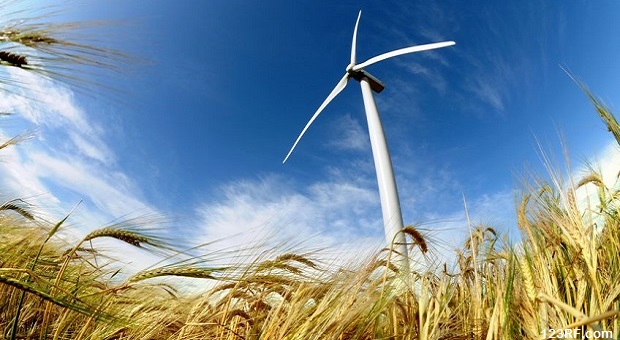
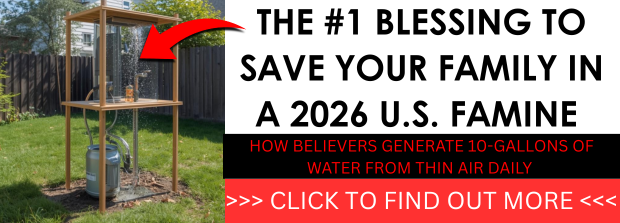
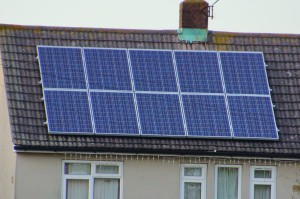
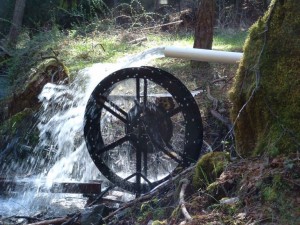
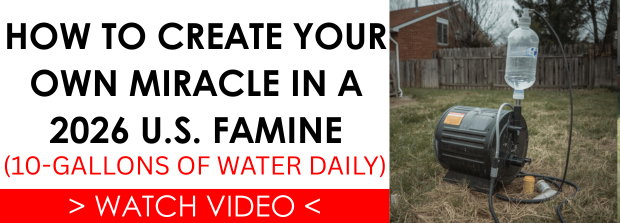


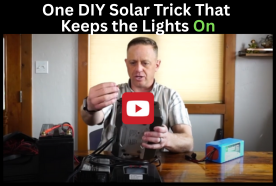


























































Alternative energy sources look good on paper, but how about a reliable gas or diesel backup system that can be retrofitted to existing homes for essentials like CH/A and refrigeration?
I HAVE STARTED MY OWN ALTERNATIVE POWER SOURCE. I HAVE THE SOLAR PANELS, APP. 175 WATTS, A WIND TURBINE, 600 WATTS, IT WILL SERVE AS A BACKUP. I have a 5500watt backup generator as well.
Anyone know much about solar generators? How long do the batteries hold out. I would like to run my small ac unit all he time on it, to help pay off the solar equipment.
gas might be the better choice for generator …diesel might be hard to get if economy crumps due to dollar collapse
How about using waste veggie oil, bio-fuels, etc… to run generators. This would be effective when “nature” isn’t available. How long would the bio-fuel hold up in storage. I know that manufacturing isn’t that complex. You have probably already addressed this and just a referral to those sources would be fine.
I agree that a back-up natural gas generator, if you have natural gas available at your home and the money to buy the generator, is a good idea. Natural gas generators are highly reliable as long as you put a new 12 volt battery (the Achilles heal of the system) in every 3 years (even if the existing battery is not worn out) because natural gas is becoming a more dependable supply as horizontal drilling and fracking continues in the U.S. I recommend Generac back-up generators and that you use the local Generac dealer to do the installation for you. Electricians can do the hook ups but I have yet to find one that understands the generator/machine itself even though they will all tell you they do. This is from several first-hand experiences. Also, some of the back-up generators have load shedding capabilities so that if you have alternative power capabilities such as solar, wind, etc. you may be able to set up the system so that the alternative systems will supply power first and the back-up generator last (this has to be researched to make sure it can be done with the alternative power source(s)) but ours works this way when just the generator is running. For example, in the summer if the electricity goes out our generator turns on and supports part of the home including the HVAC system. When the air conditioner turns off electricity becomes available for other parts of the home or other systems that are not as crucial to our comfort or living.
My wife and I have lived off the grid for many years. We installed the solar system ourselves via New England Solar – a great company. We hired an electrician for a few hours when we were done to check out our work. All tolled we spent a little over $3,500 for everything in 2005. The estimate we were given for a, “professional,” installation…. $18,000 to $20,000 give or take a few. Learn what to do, get a good resource person and guide and save yourself thousands…. and you will know your home system inside and out when done.
Re: Michael Upper’s comments on 6 June…here in Australia we have a big movement against Coal Seam Gas Fracking. One small child in Qld. has suffered permanent neurological damage, after his parents bore well water was poisoned with fracking fluids. All they did was put him and his siblings in the bath, without knowing what had happened to the bore that day. There are many other cases of chronic illness near Gas Fields. They can now set their tap water alight, that is how toxic it is. Under these circumstances, is gas a viable (but definitely not ethical) alternative?
Sounds like the enviro-whackos from the USA have invaded Down Under. Since that is a more liberal government, that should be easier pickings for their scare tactics, which have proved to be demonstrably false here. Even the rabid, ultra-left, anti-drilling EPA has had to admit that there is no pollution from fracking.
* “In no case have we made a definitive determination that the fracking process has caused chemicals to enter groundwater,” Environmental Protection Agency administrator Lisa Jackson stated last April. In May 2011, she told the House Committee on Oversight and Government Reform: “I’m not aware of any proven case where the fracking process itself has affected water.”
* The EPA tested drinking water in Dimock, Pa., which ecologists claim fracking has tainted. “EPA has determined that there are not levels of contaminants present that would require additional action by the agency,” it concluded last July. Regional administrator Shawn M. Garvin added: “The Agency has used the best available scientific data to provide clarity to Dimock residents and address their concerns about the safety of their drinking water.”
The other sensational trick, flaming tap water, has in every case been proven to exist BEFORE there was drilling, and also in areas where no drilling has ever occurred. Whatever affected the child mentioned, if that is a legitimate case, is not fracking. There is nothing in the chemicals that would have that level of toxicity. The people protesting fracking are anti-capitalists first and foremost, challenging them scientifically is like shooting fish in a barrel, not even sporting. Solid scientific analysis will prove that fracking is not responsible for the pollution, real or imagined, just as it was shown in the USA.
Got the guts to stand behind your palaver, Go drink some well water from Tioga North Dakota not the specially treated city water. But say 10 gallons From a random nearby farm and ask the farmer about the quality of his well and how long has it been that way. Use this water exclusively for your drinking water , and finish it. It will only take a few weeks. I dare you . You must be a Fracking knumbskull. Let us know how you feel after that.
Hi Jerry
I am very interested in a do it yourself approach to solar energy. Any advice would be greatly appreciated.
Thank you.
“WHY” alternative energy?
Some people like to debate the cost/payback models of alternative energies. e.g. It would take 30 years for a full-home solar electric system to payback itself versus energy-saved from the local utility system. So, people allow this to influence them away from installing a system.
But…
WHY are you considering an alternative energy system in the first place?
Financially-speaking, let me also say this: If you invest the SAME amount of money into a decent utility company that pays decent/average annual dividends on your investment, it’s ABOUT THE SAME!!! (e.g. free electricity for life, via your annual dividend payments. Invest enough $$$ into a utility company, and your dividends will be the same, or even MORE than your annual electric bill.)
So… “WHY” by and install an alternative energy system?
The main reasons are these:
1.) To have power, when the grid is unavailable;
2.) To provide you with electricity, when you can no longer afford to pay for it (due to the collapse of the currency/economy.)
Sure, there’s also the “green factor” advantages, too. Or, and the self-satisfaction of creating your own mini powerplant. Even bragging rights to friends and neighbors.
But, the FINANCES are somewhat of a “wash” — e.g. invest in your own electric system; or invest in The Man’s electric system.
Back to topic #1: Having power when it’s unavailable.
We lived in a hurricane zone. It didn’t take a direct-hit of a full-blown CAT4 hurricane to knock-out our power for days, even WEEKS. Even a near-miss by a tropical storm could send us back to the dark ages for a few days.
It doesn’t take long for all that stockpiled food in your freezer to spoil when the power goes offline.
Sure, we’re preppers, and we have generators, and stockpile fuels, etc. “Yes,” we fired-up the gennys, and survived our blackouts, and saved our supplies.
But, what happens when this is an outage that outlives your fuel supply? What happens when there isn’t ANY fuel supply anymore?
Also, a running genset is NOISY, and a dead giveway to anyone/everyone that you have power. It makes you a target. Maybe just a target of curious conversation? Maybe the target of a needy neighbor? Or, maybe the target of someone who wants your genny more than you do?!!! If you have the spare $$$ to spend on a genny, then you probably have enough spare $$$ for other (more expensive) items, too!!! TARGET!!!!
Thus, a solar system would be a bit less conspicuous. Nice an quiet.
But, the same storms that blacked-out your town, could also blow your solar panels off your roof, or bring a tree down upon them, too!
If you are fortunate enough to live near a small creak, a hydro-electric system would be the way to go!!! You can generate a HEALTHY amount of energy from even the smallest of streams! But, these include moving parts (which will eventually fail.) My guess, they will fail when you need them most.
If you have enough open space, and far enough from neighbors, you might also consider a wind generator! (Again, more moving parts…) Personally, I like the idea of wind generator + a telescoping Ham radio tower that you can erect if/as needed. (e.g. if you solar system gets blown off the roof, then hoist your wind generator, and be back in business. 🙂
The second reason WHY to own an alternative energy system, is for protection from economic collapse. This could be PERSONAL economic collapse (like retirement, or prolonged unemployment); or something larger (like the hyperinflation of your domestic currency.)
Back during the Great Depression, people who owned their homes free & clear too often lost them to the tax man and rich predators, because they couldn’t afford to even pay their annual property taxes. If you can’t pay your annual property taxes, then you can’t pay your electric bill, either! Heck, I remember my elderly grandmother falling upon difficult financial times, and she would stop paying her electric bill, and nearly freeze to death in the winter (prior to the dollar-help days.) But, even dollar-help programs won’t help you when EVERYONE needs them!
Buying/building your own alternative energy system during the good times, is essentially self-insurance against the bad times. In many states, you can even sell-back your excess power for $$$ (create a little nest egg to help offset those property taxes?)
Nowadays, our society is addicted to electricity. When the grids go down, people will line-up like needy customers to people who have alternative energy supplies. Thus, your excess can be used to recharge deep-cycle batteries for people; or recharge AA batteries; etc.
When (not if) hyperinflation eventually occurs, NONE OF US will be able to afford our electric bills. As more and more customers go dark, and fall off the grid, the higher each of our respective bills will become. (e.g. the loss of quantity/volume economics.) Sure, power would EVENTUALLY be socialized, and returned to businesses and the masses, but that doesn’t happen overnight…
As others like to point out, it took them three days to get water to the Super Dome after hurricane Katrina. How long do you think it would take our “leaders” to resolve hyperinflation? Or, to socialize the utility companies?
Personally, I’ve also created somewhat of a “mini” power station for our bug-out trailer, too. It has a stack of several solar panels, that I can string-out across the ground of the campsite. (No fancy racks required.) I also have a telescoping pole mounted to the corner of the trailer, that I can attach a marine-grade wind generator onto — and raise it up to collect winds.
Generally speaking, it’s usually either sunny (solar panels,) or cloudy/windy (wind system.) Also, the wind system works at nights, whereas the solar systems don’t do much at night. (Sure, on a CLEAR night with a full/bright moon, the still trickle a little bit of power. But, not the amount of power WE like to consume!) Our trailer also has a series of 6-volt Trojan golf cart batteries to help store our energy, and spread it out over time and across the lulls.
NONE of this is cheap!!! Sure, some of the prices come down over time, or improve and become less-expensive with newer technologies. I can’t brag enough about my new Lithium-Ion batteries!!!! (But, that’s a whole other story…)
Personally, MY justification or alternative energies, is power. Literally. POWER to the people!!!
Peace.
A hydro-electric system can be damaged or destroyed by the same kind of storms that take out your solar and wind. Hurricanes, tornadoes, thunderstorms, flooding, all can knock trees into your hydro system, wash it out or plug it with trash, mud. etc.
Also if you live in an area that they say is too cloudy for solar don’t believe them. It just means you need more solar panels to get enough power. probably something like 5 or 6 six times of what you would need if it was sunny, so unless you have deep pockets may not be worth it especially if you have other choices, and no the extra power when it is sunny won’t hurt the panels or charging system. The only way it could, would be if the charging system is not made for the no load voltage of the panels (bad design).
I’ve attended about the most effective internet sites to get 1.:)
I live in the country, I don’t have a stream, and I am on a fixed income. I am a 65 year old female so I couldn’t do the work myself..Would you tell me please how much I can look to pay for solar panels that would generate enough power to accommodate a 1200 sq ft house with 2 stories and a tin roof. Also if I decided to add wind how much extra would that be? And how long does it usually take to erect all this? ……Thank you for your wonderful and informative articles..
I am in fact grateful to the holder of this site who has shared this wonderful post at at this time.
I got this web site from my pal who informed me on the topic of this website and now this time I am browsing this website and reading very informative articles or reviews at this place.
Quality articles or reviews is the crucial to be a focus for the
users to pay a quick visit the web site, that’s what this web page is providing.
Regarding wind power – – check out the Sauer Energy [sauerenergy.com]vertical axis wind turbine. Looks like the best of that genre of backup power systems. Effective in as little as 5 mph wind, compact, 1.5kW.
It’s actually a great and helpful piece of information.
I’m happy that you simply shared this helpful info with us.
Please keep us up to date like this. Thank you for sharing.
If in this position one has to try to get over it and move
on, and that does not happen if there are no measures taken to prevent another break
in. She also needed to be able to see into the room when it was dark or with low light.
Banks are an important place that keeps safe all the valuables
of people and hence, have more probability of being robbed by burglars.
Anyone know about free energy, like magnetic generators? Is someone making them and selling them in the USA, I know the patent office would never allow such a product to be mass produced because the Government is afraid it would effect national security.